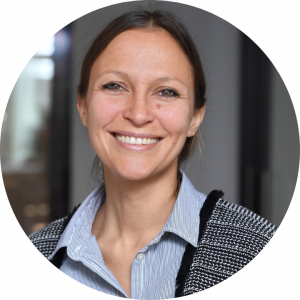Speaker

“A ‘German Orientalist’ in Aden: Decolonizing Methodologies through the Biographic Approach”
– DAY 2 –
Nora Derbal, The Hebrew University of Jerusalem
Abstract:
Since Edward Said’s seminal book, Orientalism (Said 1978), the debate about German Orientalism has centered on the question in how far German Orientalism was different from other European orientalisms. Were “German Orientalists” motivated by national (material, political, or economic) interests, similar to the French or British, whose knowledge trajectory Said located in the service of empire? Although Said himself exempted German scholars from his critique, since Sheldon Pollock (1993) many works have shown that “the Orient was the site upon which and through which German national and imperial visions were articulated and acted upon” (Jenkins 2004). This is where the debate about German Orientalism in German Islamic/Middle Eastern Studies has stopped short.
In my presentation, I offer a new perspective on German Orientalism and the history of knowledge production about Islam by shifting the focus from Orientalism as theory to an understanding of Orientalism as embodied practice. Myself a German scholar of Islam, I argue that decolonizing our research methodologies requires close attention to the research practices of our academic ancestors and their embeddedness in material and immaterial (colonial) structures of domination and othering – which often continue to form the basis of our understanding of Islam. In other words, I use the historical biography as a case study that triggers important questions about the contemporary academic study of Islam.
In my research, I study the life and works of the “German Orientalist” and traveler Heinrich von Maltzan (1826-1874). In his days, Maltzan was considered “one of the best practical experts of the Orient” (Ratzel 1884). Maltzan wrote numerous, much read travel accounts; he published prominently in the German press; and he gifted material objects, gathered during his journeys, to the German Oriental Society (DMG). However, as an amateur with no relevant university degrees, Maltzan was an outsider in the academic community. A German aristocrat with a British mother, probably homosexual, a self-trained philologist: through Maltzan’s complex vita, his quest for knowledge also emerges as a personal quest for status and recognition.
In my presentation at the conference “Imperial Lives”, I would like to focus on one particular journey of Heinrich von Maltzan. At the height of his career in 1870–71, Maltzan travelled to Aden (in today’s Yemen), where he conducted philological research, which was later published in the journal of the German Oriental Society (ZDMG), one of the flagship institutions of German Oriental Studies. Maltzan documents the journey in a diary, in letters published in the German press, and in scientific articles published in cultural magazines, scientific journals and a two-volume travel handbook. By following Maltzan on his journey to Aden, I show how the “German Orientalist” Maltzan was deeply entangled in networks of patronage but also in styles of thought that he adopted from the British and French, and their imperial authority in North Africa and the Arabian Peninsula. The biographical approach allows for a close-up view of practices of knowledge production and the conditions that enabled the study and dissemination of knowledge about the Oriental/Muslim Other.
Bio
Derbal is currently a postdoc at the Martin Buber Society of Fellows in the Humanities and Social Sciences at the Hebrew University of Jerusalem. Financed by the German Bundesministerium für Bildung und Forschung (BMBF, 2020-2024), Nora Derbal works on her second book (Habilitation) about the life and works of the German Orientalist and traveler Heinrich von Maltzan – an investigation of knowledge production and the epistemic field of Islam in the long 19th century.
Her first book, Charity in Saudi Arabia: Civil Society under Authoritarianism, was published by Cambridge University Press in 2022, and selected as “Book of the Year 2022” by the Times Literary Supplement. Nora Derbal has studied Islamic Studies and History at Freie Universität Berlin, Oxford University and King Abd al-Aziz University in Jeddah, and earned a PhD in Islamic Studies from Freie Universität in 2017. Before joining the Hebrew University, she held a postdoc at the American University in Cairo and worked as a research assistant at the Orient-Institut Beirut.
See also:
noraderbal.com
@Twitter
(Photo: private)
